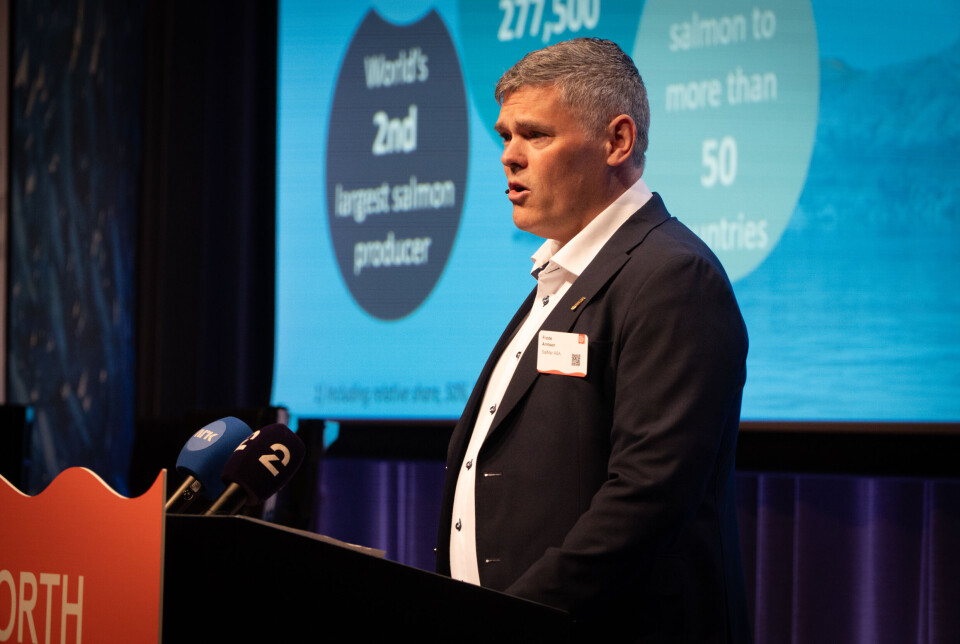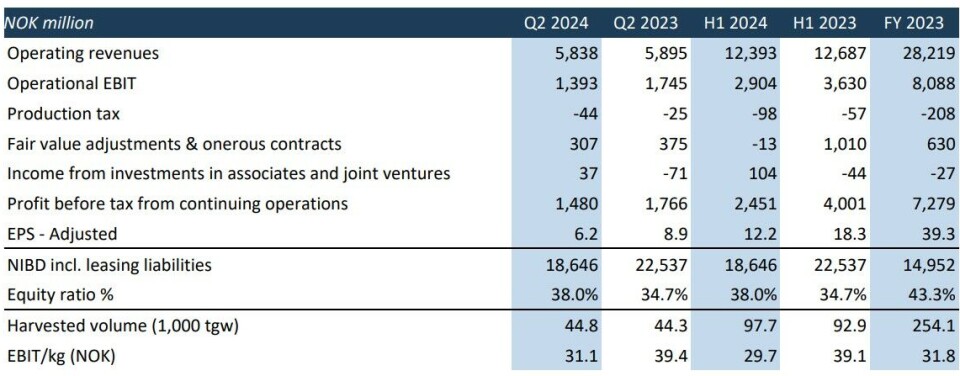
SalMar operating profit reduced by hangover from winter challenges
Salmon farming heavyweight SalMar made an operating profit (EBIT) of NOK 1.393 billion (£101.5 million) in the second quarter of this year. The result is 20% lower than the NOK 1.745bn made in the same period last year, despite a slightly higher harvest of 44,800 gutted weight tonnes (Q2 2023: 44,300 gwt) in Norway and Iceland.
Operational EBIT per kg was NOK 31.1, down from NOK 39.4 in the same period last year.
Income included the company’s share of the £17m operating profit made in Q2 by Scottish Sea Farms, which SalMar owns 50-50 with fellow Norwegian salmon farmer Lerøy Seafood Group, although SSF’s harvest volumes are not consolidated into SalMar’s quarterly figures.
SalMar, the world’s second largest Atlantic salmon farmer, said its fish farming segment in Norway showed improved biological performance, but harsh winter conditions and extreme weather earlier in the year continued to negatively impact the superior share and price achievement, particularly for its Farming Northern Norway division.

The Sales and Industry division continued to demonstrate its efficient and flexible operational set-up. The contract share was 46%, which combined with high spot prices resulted in negative contribution.
Icelandic Salmon reported high cost due to continued biological challenges in the quarter and low harvest volume, affecting results.
SalMar’s majority-owned offshore division, SalMar Aker Ocean, successfully transferred smolt for a new production cycle at Ocean Farm 1 in the quarter, with planned harvest in 2025.
Positive KPIs
SalMar chief executive Frode Arntsen said financial results were acceptable in a period marked by the aftermath of a challenging winter season.
“Strong commitment from all segments has resulted in a positive development of key performance indicators,” said Arntsen. “In parallel we have taken several decisions aimed at delivering on our ambitions to deliver sustainable growth. We acquired additional production capacity in a recent government managed auction in Norway and we been granted 10,000 tons of MAB (maximum allowed biomass) in Iceland.”
SalMar's 2024 harvest guidance for Norway remains unchanged at 237,000 gwt, 7,000 gwt from SalMar Aker Ocean and 37,000 gwt for Scottish Sea Farms (100% basis). Guidance for SalMar's Iceland subsidiary Icelandic Salmon (Arnarlax) is decreased to 13,000 tonnes.






















































